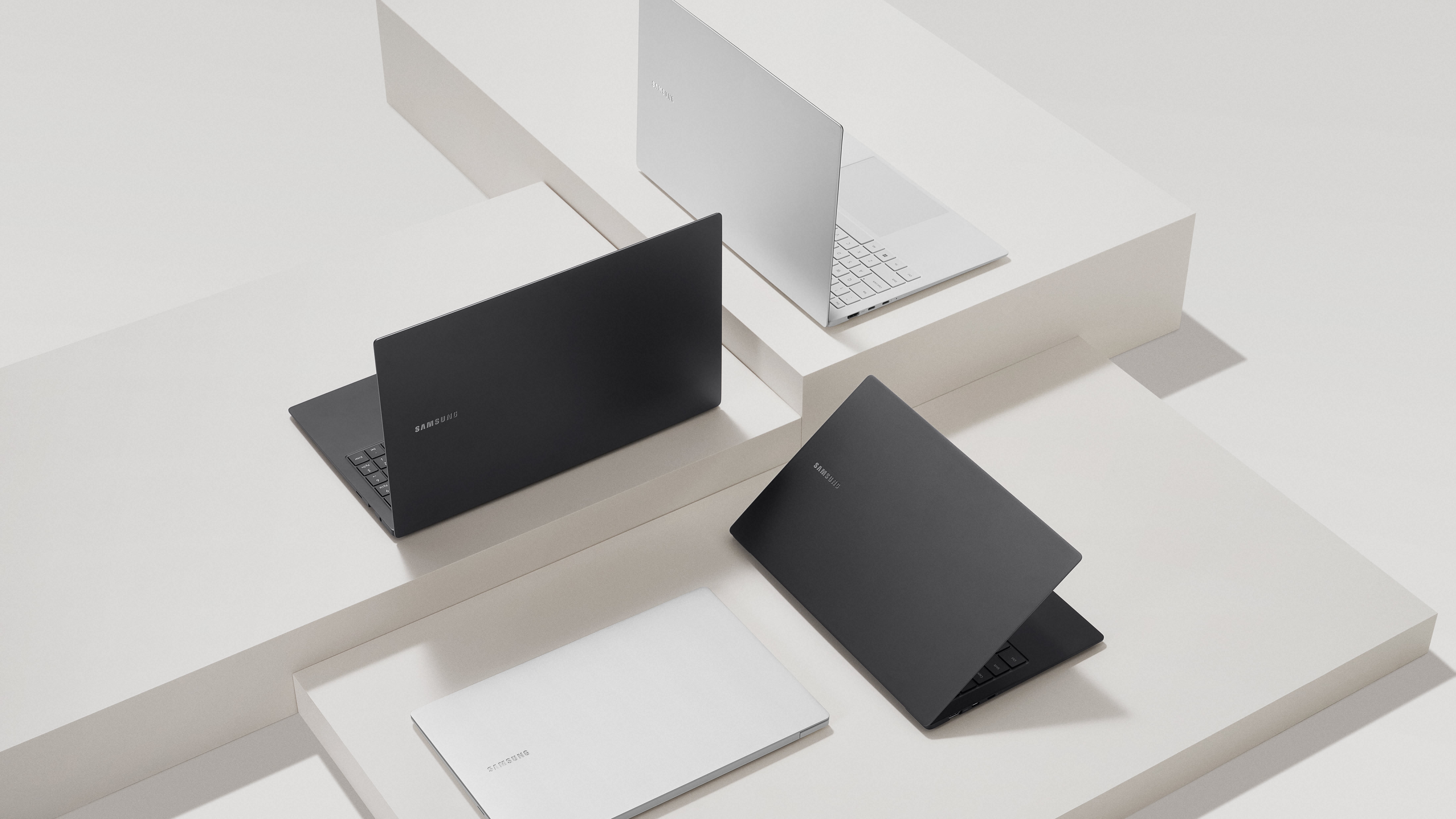The Samsung Galaxy Book 2 is our first glimpse at an Intel ARC powered laptop

It was previously rumored that we wouldn't see Intel’s Arc Alchemist graphics cards launch until around Q2 of 2022, though it seems we won't have to wait much longer to see what the new generation of Team Blue's graphics is capable of, with Intel Arc featuring in at least one version of the upcoming Samsung Galaxy Book 2 Pro.
As reported by PC Gamer, this information comes directly from the official Galaxy Book 2 Pro press release published by Samsung, which lists 'Intel Arc Graphics' as a configurable option for the larger Galaxy Book 2 Pro 15.6-inch version of the laptop.
Samsung is an unlikely choice, considering the South Korean company's previous laptop releases like the Galaxy Book Go and Galaxy Book Pro have been met with a resounding 'meh', but this could be a partnership that helps elevate both Intel and Samsung into a higher position on the overall market.
The upcoming Samsung laptops will also feature up to 32GB of DDR5 RAM, a 12th-gen Intel Core i7 processor, and a 1TB SSD, though it's unlikely you'll want to set this up as a dedicated gaming device. Instead, this is being advertised more like a portable workstation, giving users some additional juice to run applications that might be too demanding for a low-powered device.
That doesn't mean it won't run games though, so you'll likely be okay to install some older titles onto the system. It's worth noting that both the smaller 13.3-inch model of the Samsung Galaxy Book 2 Pro and the low-end configurations of the 15.6-inch model will be powered by integrated Intel Iris X graphics rather than the more powerful Intel ARC GPU, so make sure you check the specifications before you buy.
Another interesting note is that the specifications for that larger laptop have two different size and weight options, dictated by 'External' and 'Internal' graphics, which suggests that the ARC GPU option may be an external GPU that connects with the laptop.
We will get more information when product listings and pre-orders for the Samsung Galaxy Book 2 Pro go live, so until then we can only speculate, but let's keep our fingers crossed that the performance of the Intel ARC graphics can live up to the hype.
Sign up for breaking news, reviews, opinion, top tech deals, and more.
Analysis: Should Nvidia and AMD be worried?
It's been well documented that the Intel ARC GPU range isn't looking to compete with some of the heavy-hitting graphics cards already available on the market, such as the Nvidia GeForce RTX 3090 or AMD Radeon RX 6900 XT, but affordability and availability will be where Intel has the opportunity to steal some market share back from team Red and team Green.
Healthy stock levels, plus quality cards and drivers making a positive first impression, could be combined with an attack on the pricing front, and that would be the best development in the consumer GPU world we’ve had in a long time, especially as many previous rumors have suggested Intel's GPU prices will be extremely attractive.
A lot of the focus has been on desktop graphics, but announcements like the Samsung Galaxy Book 2 Pro suggest that both Nvidia and AMD will also need to keep an eye on the gaming laptop market. The Galaxy Book 2 is far from a gaming machine, but there is certainly a demand for cheap gaming laptops in the new world of hybrid working and education.
If Intel can impress us enough with the gaming capabilities of the ARC GPU in a gaming laptop while keeping costs low, its rivals will need to fight hard to retain customers with lower budgets or reduce the costs of products that are currently available. We certainly have our fingers crossed, and we're looking forward to seeing what Intel can bring to the table.
- These are the best graphics cards

Jess is a former TechRadar Computing writer, where she covered all aspects of Mac and PC hardware, including PC gaming and peripherals. She has been interviewed as an industry expert for the BBC, and while her educational background was in prosthetics and model-making, her true love is in tech and she has built numerous desktop computers over the last 10 years for gaming and content creation. Jess is now a journalist at The Verge.